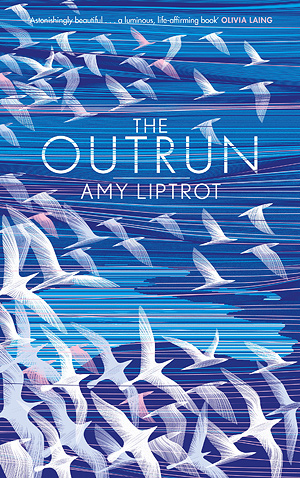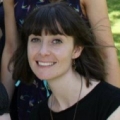You have no items in your cart. Want to get some nice things?
Go shopping
The emergence of “new nature writing” has been a phenomenon in British publishing over the last few years. Since the marked success of publications such as Helen McDonald’s H is for Hawk (one cannot think of this new genre without recalling that book), entire sections of bookshops now seem to be set aside for non-fiction about writers’ personal relationships with and musings on the distinctiveness of their environments.
These books are often made sumptuous objects on the shelves with striking designs, which has surely added to their appeal. Not only have they received prominent attention on the already established awards lists, a new annual prize was inaugurated in 2014 dedicated to books that encompass “general outdoors, nature and UK-based travel writing”. The Wainwright Prize is named after the well-known and equally loved British rambler and writer. It has helped raise the status of this new genre even higher. Among its illustrious shortlist for 2016 is The Outrun by Amy Liptrot, which fits amicably within this genre, while also demanding attention in its own right.
Liptrot’s memoir about her life in London, her addictions that nearly drowned her, and her subsequent resurfacing on Orkney, has made waves. It published in January this year and was quickly snapped up as a Radio 4 book of the week, which is quite an accolade in itself. The book measures one person’s engagement with the natural world alongside the realities of lived experiences in modern urban environments. It does not exactly pit one against the other but blurs the boundaries between the two. Both are seen to hold their fair share of thrills, as well as bleakness.
Thrills definitely appear to be a preoccupation of Liptrot’s, as she reveals in the opening chapters of the book the harrowing details of her addictions. The narrative of The Outrun is in itself thrilling: it rarely lets up. I find my own heart rate increasing as I read, rushing through the pages, barely coming up for air. Liptrot’s use of language, her peculiar style, reminiscent of the beat generation of the twentieth century, somehow weaves you imminently into her heady experiences, despite using the past tense. You get the distinct impression that the vividness of these recollections are, while gripping to read, serving another purpose for the writer. Her sobriety is unstable and she has to force herself to remember these realities of her alcoholism to avoid relapse.
Liptrot exemplifies a defining feature of “new nature writing”, something that also is present in Rob Cowen’s Common Ground and James Rebanks’ The Shepherd’s Life, with which The Outrun shares the 2016 Wainwright shortlist. There are unflinchingly candid, vivid revelations of her particular experiences and engagements with her world. I can find myself viscerally immersed in Liptrot’s habitats, whether they be a cold, grey flagstone on a windy island cliff, or a solitary, smoky city bedsit. She is frank about her own shortcomings in a manner that suggests someone who has reached a certain acceptance of them. She lays her lowest moments bare for the reader to see and so to share in the difficult questions she has herself fought over in these bleak times: what makes a life worth living?
Another defining feature of new nature writing, present in The Outrun, is an insistence on decrying earlier nature writing’s belief in nature as a wholly redemptive force. Nature is often at best indifferent, at worst brutal, towards human life. It is not our project, our discovery. This is revealed to have a profoundly humbling effect on the author, who then shares this experience with the reader. It is a very intimate form; author and reader are subsequently engaged in a sort of modern-day covenant in an era defined so much by the urban and the idea of the individual as sovereign.
Liptrot will be appearing this weekend at the Caught by the River Thames festival, hosted by Caught by the River, a website that since 2007 has cultivated a lot of the writing now considered to be new nature writing. The genre’s name does not sit comfortably with many associated with it, and it is not without its critics. There remains, for example, an intriguing gap between the present reality of British natural history, and the public taste for such books. The Outrun is a thrilling and heartbreaking story, with some profound insights on modern lived experience in Britain, for which the island is a haunting and powerful metaphor. To what extent it is a nature book is debatable. The same same question has been raised over H is for Hawk, the indisputably powerful account of grief told through the motif of a goshawk.
The author of West: a Journey Through the Landscapes of Loss (published in 2010), Jim Perrin has pointed out that for many of the readers of new nature writing, an engagement with nature represents a kind of mourning for an experience outside of a quintessentially urban present. This might explain why nature writing has become quite the staple feature at the many summer festivals around the UK that coax people momentarily out of city life and into open fields and tents. To become aware of this is not to detract from the genre’s power. One could argue that this new nature writing is a perfect literary form for our times.
The Caught By The River Festival takes place on August 6 and 7 at Fulham Palace, London SW6.

About Becky Ayre
Becky is a writer, editor and researcher of visual arts and the environment. She lives in Oxford. She works collaboratively with Inheritance Projects—a small group of independent curators and researchers that organise exhibitions, events, new commissions, publications and research projects. She blogs at Atmospheres of Uncertainty.




